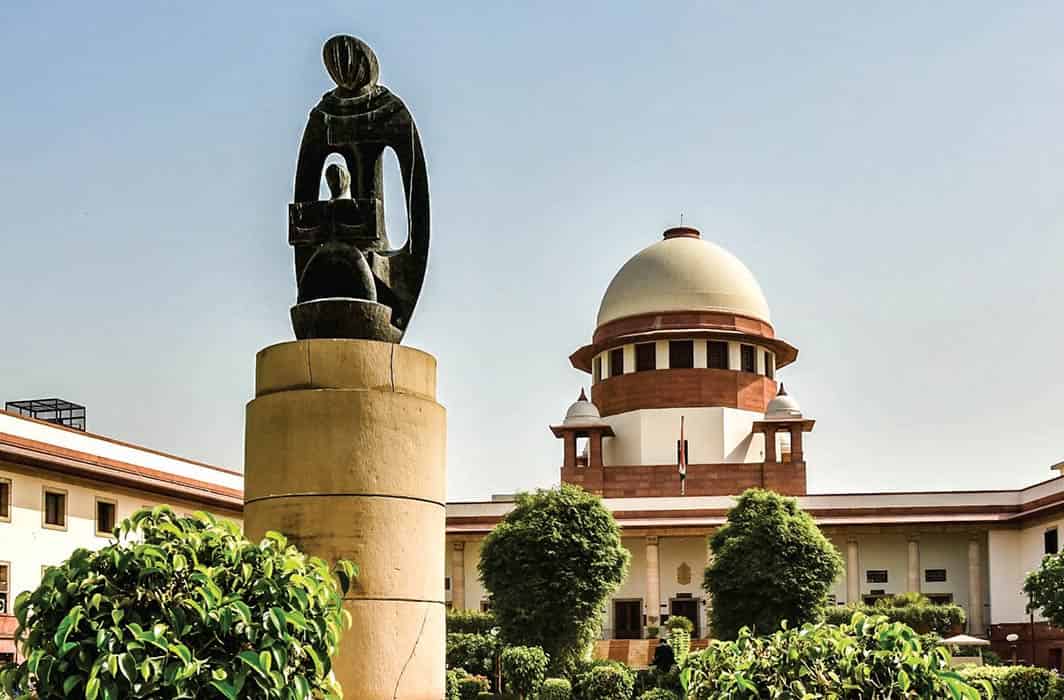New Delhi (ILNS): Starting November 25, the Supreme Court will begin hearing petitions filed by various stakeholders to obtain registration on Geographical Indication (GI) for Basmati rice.
With the world market on Basmati rice in legal and political turmoil, within the country itself, applications for the grant of registration on Geographical Indication (GI) for Basmati rice have come into the Supreme Court from many states.
The claims were presented to the top court by J. Sai Deepak, arguing counsel for the state of Madhya Pradesh and Avinash K Sharma, R. Abhishek and Abhishek Manu Singhvi representing Basmati farmers of Madhya Pradesh.
The issue dates back to 2008, when a statutory body of the central government filed an application for the grant of registration on Geographical Indication (GI) for Basmati rice. The said application claimed five entire states/Union Terrotories, namely Delhi, Punjab, Haryana, Uttarakhand, Himachal Pradesh and parts of Uttar Pradesh and the erstwhile state of Jammu and Kashmir as traditional Basmati growing areas. This effectively translated to a claim from over 108 districts across seven states spanning an area of 2,85,576 square km.

In September 2010, the government of Madhya Pradesh and Basmati farmers from the state of Madhya Pradesh preferred statutory oppositions against the GI application filed by the Agricultural and Processed Food Products Export Development Authority (APEDA) on two grounds. Firstly, the claim was that the APEDA’s GI application was incomplete due to non-inclusion of 13 districts of the state of Madhya Pradesh which have been cultivating Basmati at least for over a century and which has contributed to Basmati exports from India to North America, Europe and the Middle East. In fact, 80,000 Basmati farmers from Madhya Pradesh contribute 4.5 lakh tonnes annually to the domestic basmati rice kitty as well for exports. The government of Madhya Pradesh and the farmers of the state challenged the APEDA’s application on another ground as well, namely that APEDA’s claim should have been limited to under 35 districts covering an area of only 9,500 sq km in contrast to the 108 districts spanning 2,85,576 square km as claimed by it.
Agreeing with both contentions of the government of Madhya Pradesh and the basmati farmers of the state, the GI Registry in Chennai delivered a composite judgment on December 31, 2013, directing the APEDA to re-file its GI application, after including 13 districts of Madhya Pradesh and also limiting the scope of its claim to only the specific districts within the seven states claimed by it which actually cultivated basmati.
Against the said judgment of the GI Registry, APEDA preferred an appeal in February 2014 before the Intellectual Property Appellate Board, Chennai (IPAB). A judgment was delivered by the IPAB on February 05, 2016 upholding the blanket claim of APEDA over seven states and without addressing the objections of Madhya Pradesh to the overbroad claim of APEDA. Further, the IPAB also remanded the matter to the GI Registry to reconsider the Registry’s original decision to include 13 districts of Madhya Pradesh as part of the Basmati GI.
Against the said Judgment of the IPAB, the government of Madhya Pradesh and the Basmati farmers of the state preferred writ petitions in February 2016 before a Division Bench of the Madras High Court challenging both findings of the IPAB.
In the said writ petitions (on February 16, 2016) the division bench granted a protective interim order in favour of Basmati farmers of Madhya Pradesh which prevented APEDA from restraining the basmati farmers of Madhya Pradesh from using the term Basmati for the rice produced by them.
Further, the state of Madhya Pradesh and Basmati farmers of MP agreed to participate in the remand proceedings before the GI Registry on the issue of non-inclusion of 13 districts of MP by APEDA.
The limited question which remained for adjudication by the division bench of the Madras High Court was the overbroad claim of APEDA covering seven states in respect of which the IPAB had directed the grant of Basmati GI. In the said writ petitions the division bench pronounced a common Judgment on February 27, 2020, dismissing the writ petitions on the ground that the government of MP and the basmati farmers had never raised any objections before the GI Registry in respect of the overbroad claims of APEDA and that MP’s sole objection to APEDA’s GI application was with respect to non-inclusion of its 13 basmati-producing districts.
On March 3, 2020 the very same division bench suspended the operation of its own judgment in order to enable MP to approach the Supreme Court against the said judgment and extended the interim protective order until the judgment was challenged in the Supreme Court.
In July 2020, the State of Madhya Pradesh and the basmati farmers of MP preferred Special Leave Petitions against the Judgment of the Madras High Court, which was listed on October 05, 2020 before a three-judge bench of the Supreme Court comprising Justices L. Nageshwar Rao, Hemant Gupta and Ajay Rastogi.
Read Also: Petition in Supreme Court demanding move to impose President’s rule in Uttar Pradesh
The Bench has admitted the Special leave Petitions of MP and also extended the original protective order granted by the Madras High Court on February 16, 2016, pending the disposal of the Special Leave Petitions.
The Special Leave Petitions will be taken up for final argument on November 25, 2020.
-ILNS


